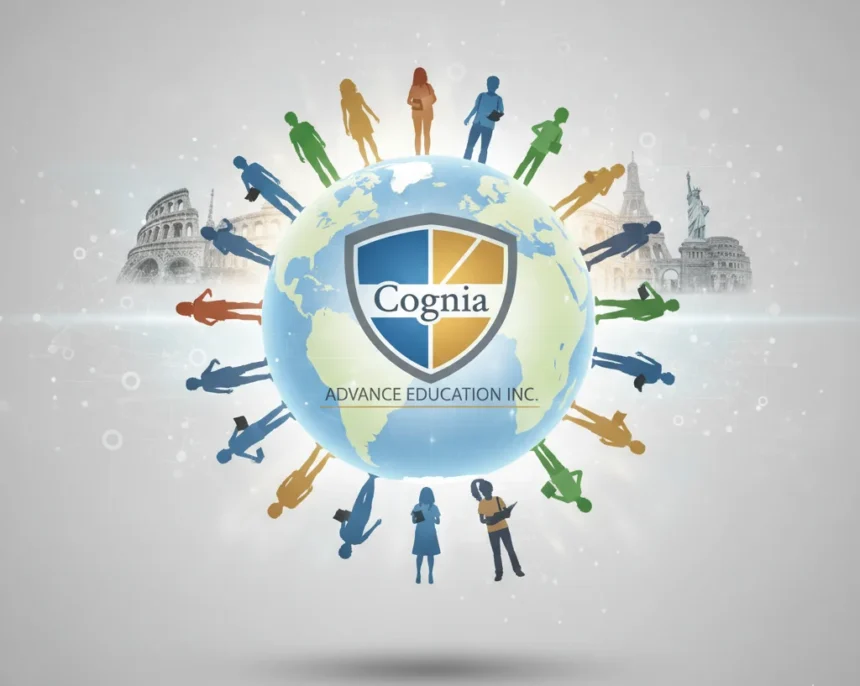The Mark of Quality in Education
When you walk into a school, how do you know if it meets a certain standard of quality? The answer often lies in accreditation a rigorous process of internal and external review performed by an independent body. For millions of students and educators across the globe, one key organization has been central to this process: Advance Education Inc., an entity whose mission evolved into the powerhouse organization known today as Cognia.
This post will explore the history, purpose, and impact of the work started by Advance Education Inc., helping you understand how this organization works to advance learning and ensure educational institutions are continually improving for the benefit of every student.
From Regional Roots to a Global Footprint
The story of the modern organization begins with a need for a unified approach to school quality. Advance Education Inc. was the organization formed in 2006 that consolidated the work of three major, centuries-old US regional accreditation bodies: the North Central Association Commission on Accreditation and School Improvement (NCA CASI), the Southern Association of Colleges and Schools Council on Accreditation and School Improvement (SACS CASI), and the Northwest Accreditation Commission (NWAC).
This consolidation under Advance Education Inc. created one of the world’s largest non-profit organizations focused solely on advancing education quality. In 2019, the organization rebranded to Cognia, a name that reflects its commitment to cognitive growth and learning, but its core function remains the same: to serve as a trusted partner in advancing learning worldwide.
What Does Cognia (Formerly Advance Education Inc.) Actually Do?
Cognia’s work extends far beyond simply handing out a good school certificate. It operates under a philosophy of continuous improvement, offering a holistic suite of services to K-12 schools, school systems, and postsecondary institutions in over 100 countries.
1. Accreditation and Certification
This is the most well-known function. Accreditation is a comprehensive review that involves:
- Self-Study: The school performs an internal review of its practices, performance data, and culture.
- External Review: A team of experienced educators from the Cognia network visits the institution to validate the self-study and interview stakeholders (teachers, administrators, parents, and students).
- A Holistic Standard: Unlike simple government compliance checks, Cognia’s review measures an institution against a set of standards that look at leadership capacity, learning culture, and resource utilization, not just test scores.
The Value for Students: An accredited school assures that the credits and diplomas earned will be recognized by colleges, universities, and employers globally.
2. Assessment and Diagnostic Tools
High-quality education relies on understanding where students are succeeding and where they are struggling. Cognia develops research-based assessment tools that go beyond one-time testing. These tools help schools:
- Identify Equity Gaps: Pinpoint where different student populations (e.g., based on socio-economic status or background) are falling behind.
- Measure Growth: Track student progress over time, giving a clearer picture of learning than a single annual test score.
- Inform Instruction: Provide actionable data that teachers can use immediately to adjust their lessons and strategies.
3. Professional Learning and Improvement Services
The ultimate goal is not just to evaluate, but to elevate. Cognia partners with educational leaders to offer tailored professional development and strategic advisory services. This helps institutions:
- Implement Best Practices: Bring proven teaching and administrative methods into the classroom and school office.
- Set Visionary Goals: Use assessment and accreditation data to create a clear, measurable roadmap for improvement over several years.
The Impact on Your Education Journey
For a student or parent, the work of Advance Education Inc. (or Cognia) has several direct, tangible benefits:
- Guaranteed Quality: It ensures that your classroom environment, curriculum, and school leadership meet globally recognized benchmarks.
- Increased Opportunities: It provides confidence that your high school diploma will be accepted by colleges and universities both within the US and internationally.
- A Commitment to Change: The process compels schools to consistently re-evaluate their performance, ensuring they do not become stagnant but actively adapt to the changing needs of the modern workforce and society.
In a rapidly changing world, the commitment to continuous quality assurance in education is more critical than ever. The standards and practices advanced by Advance Education Inc. continue to play a vital role in ensuring that learners everywhere have access to the quality of education they deserve.
Frequently Asked Questions (FAQs)
Q1: Is Advance Education Inc. the same as Cognia?
A: Yes, essentially. Advance Education Inc. was the name of the organization formed by the consolidation of three major U.S. regional accreditation bodies. In 2019, the organization officially rebranded to Cognia to better reflect its global mission, but it is the same overarching non-profit entity that provides accreditation, assessment, and school improvement services.
Q2: Does Cognia (formerly Advance Education Inc.) only work in the US?
A: No. While its roots are in US regional accreditation, Cognia is now a global organization. It serves over 40,000 institutions and 17 million students in more than 100 countries and territories worldwide.
Q3: What is the main benefit of attending an accredited school?
A: The main benefits are assurance of quality and portability of credits/diplomas. Accreditation signals to universities, employers, and other institutions that the school meets rigorous external standards for academic quality, organizational effectiveness, and student outcomes. This recognition is often crucial for college admissions and transferring credits.
Q4: Is accreditation mandatory for all schools?
A: It depends on the country and the type of school. In the US, public school accreditation is often tied to state requirements, but private schools and postsecondary institutions typically seek voluntary certification from recognized bodies like Cognia to demonstrate quality and eligibility for various programs or federal funding.




